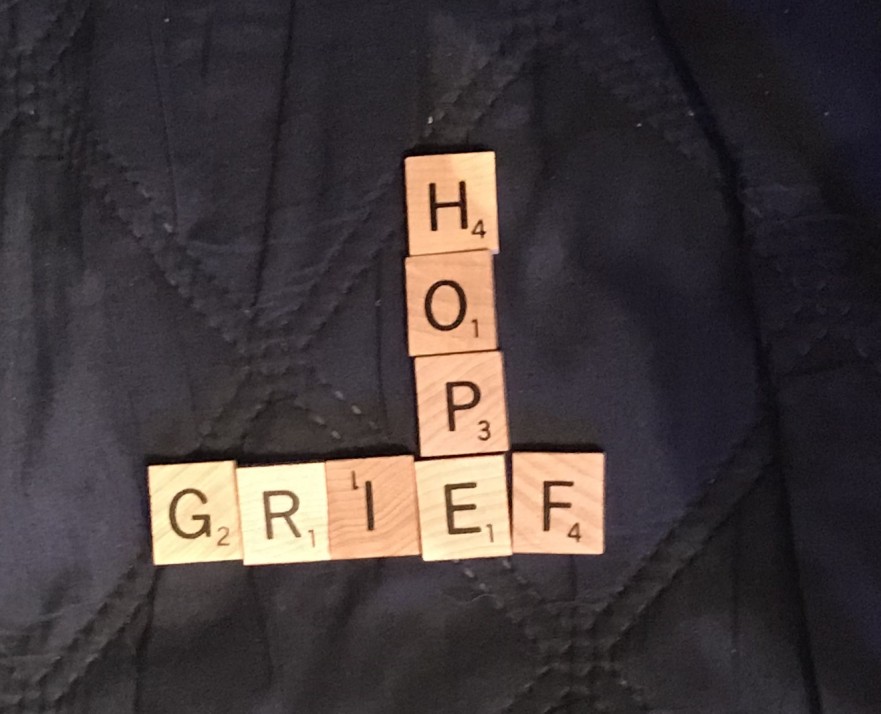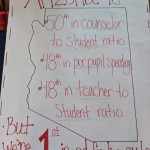Field Day-CANCELED
Packing up the classroom- with students ALONE
Year-End Awards-CANCELED
Spring Musical-POSTPONED
Graduation-VIRTUAL
Teacher Appreciation-SOCIAL MEDIA
Prom-CANCELED
Presentation of Culminating Projects-ONLINE
I am really grieving the loss of the 4th Quarter of school.
It’s always chaotic, exhausting, hot, frustrating, joyous, fun, and FULL of things to do. I miss every part of it.
Fourth Quarter is when I use my famous Be-Attitude: Blessed are the flexible for they shall not get bent out of shape.
I’ve said it, but the only people around to hear it live with me or maybe a few at a video conference!
There has been a lot to lose this school year. I’ve had days when I was mad and wanted to scream until I had no voice. I’ve had days that I cried or simply could not sit through one more task at the computer.
There is grieving to be done, and we all need to grieve in the way that works for us.
Give yourself some time to reflect on what you have missed and be sad about it.
Now, turn your attention to something positive that has or could be a result of the school closure.
Here are some things I’ve heard from educators:
- I’ve cleaned out every drawer and cabinet in my classroom, I never have time to do that.
- I’ve got a new plan for students who are absent and need to make up work (the online platform)
- I’ve finished every project at my house.
- I’ve never had time to learn the online platform, I’m going to integrate more technology in my classroom going forward.
- This has really pushed us as a team to be more innovative.
- I can see the value of incorporating virtual lessons.
Here are some of the things I hope will happen:
- More Innovation especially in the area of technology and online learning tools
- Less emphasis on testing
- Moving to more holistic education
In my blog last month, I talked about Arizona teachers going through a “Baptism by Fire” in the area of technology integration. I know it has been intimidating and very messy in a lot of areas. I am really hoping that teachers and administrators will take a close look at how technology is used and how it can be improved to meet the needs of students. Technology tools are not an end in themselves, but a tool to deepen learning and world view. I’ve heard numerous people talk about how the “digital native” generation doesn’t really understand how to appropriately interact with technology. That is a significant career skill that our students are going through their entire education not mastering. Being a “digital native” does not mean that students are “digitally literate.” They must be taught and given opportunities for practice that sharpens skills and deepens knowledge. I’m hoping more of that happens.
This school shut down occurred in Arizona at the very beginning of the “testing window.” Schools across the nation suspended the high-stakes testing for the 2019-2020 school year. I do not think this is a bad thing to have happened. Our educational system has become so entrenched in looking at high-stakes test scores as the ONLY indicator of student achievement and teacher effectiveness. We have lost sight of the power of a well-rounded education. Fine Arts, practical arts, life skills, technical training, alternative education, and other programs have been cut to focus on the skills directly measured on “the test.” There was once a prevailing thought that teachers wouldn’t “teach” if their students weren’t tested. I’ve seen teachers, administrators, and parents working harder since the testing mandate was lifted.
I hope we will look at the education of children and adolescents as more than what is measured on “the test.” I hope that culture and our nation takes a more holistic look at how we educate society. Shouldn’t having a variety of course offerings, taught by highly skilled professionals, with quality facilities be part of what qualifies a school as excellent? I think it should. That means we have to put the test scores in the proper perspective and focus on the humans that are being educated and doing the educating.
Does this cost money? Of course, it does! It’s an investment in the future of our communities, our state, and our country. It’s money worth spending.
So tell me your thoughts:
- What skills were students lacking that we need to address?
- What fears have you faced and overcome?
- What will you take forward as a gift from this season?










Comments 2
Great read, Susan! I have also been thinking about this. I am hopeful that following this time of crisis we will adjust our priorities for school accountability and look at more than just a standardized test.
I did tweet weeks ago something to the effect of: “I wonder if this pandemic with catapult us into the 21st century.”
I think one “benefit” of this chaos is that a lot of people understand how to more intentionally use technology. I also believe that teachers realize that many students are not tech-savvy just because it is 2020. Teachers waking up to the realities of some students home-life is maybe one of the more critical things we’ve found this semester.